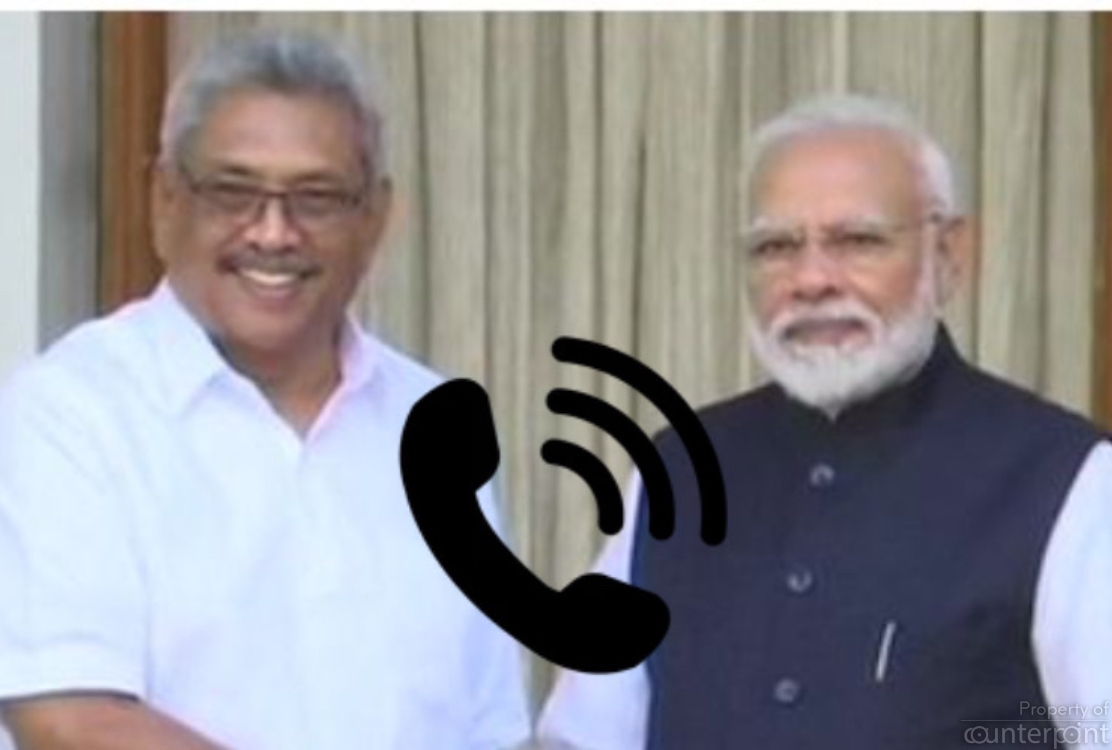Sri Lankan President Gotabaya Rajapaksa and Prime Minister Narendra Modi reviewed “topical developments” during a telephone call on Saturday, an official press release said, just over a week before a crucial vote on Sri Lanka at the U.N. Human Rights Council, where Colombo has sought New Delhi’s support. The Hindu said
The call, initiated by the Sri Lankan side according to officials sources, assumes significance amid strained bilateral ties, following Colombo’s recent policy choices on key infrastructure projects, including a decision to boot India out of a Colombo Port terminal project and an approval for a Chinese energy project in the northern islands, close to the Tamil Nadu coast. New Delhi conveyed its displeasure on both moves. Colombo has subsequently offered an alternative terminal project and is negotiating with the Adani Group. According to the Hindu
“Had a telephone conversation with President @GotabayaR. We discussed issues relevant to our bilateral and multilateral cooperation, including in the context of COVID-19,” PM Modi said in a tweet.
A media release issued by the Indian government said: “The leaders reviewed topical developments and the ongoing cooperation between both countries in bilateral and multilateral forums. They agreed to maintain regular contact between relevant officials, including in the context of the continuing COVID-19 challenges,” and added that PM Modi “reiterated the importance of Sri Lanka” to India’s ‘Neighbourhood First’ policy.
As the Human Rights Council prepares to vote on a resolution on Sri Lanka’s rights record later this month, the Rajapaksa administration is counting on friends and neighbours, who are currently members of the Council, to back it. President Rajapaksa earlier wrote to PM Modi, among other leaders, seeking a favourable vote. Reiterating Colombo’s expectation, Foreign Secretary Jayanath Colombage told The Hindu in a recent interview that “India cannot abandon us.”
It is widely predicted that India might abstain, given its own principle against country-specific resolutions and growing geopolitical concerns in the strategic island nation. All the same, those familiar with the Geneva process observe that India could still play a crucial role in last-minute negotiations among members of the Council, and potentially tip the scales.(The Hindu)





